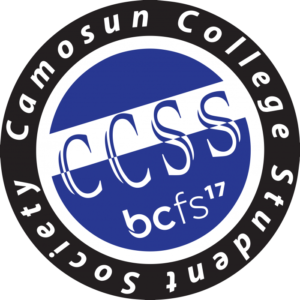The Camosun College Student Society (CCSS) elections will be open for online voting from October 24 to October 26, with several positions vacant.
CCSS external executive Jessie Niikoi is hopeful that the student society will have a complete board—which would mean filling positions like the international and pride representatives—for the upcoming term.
The campaigning period for nominees is open until October 23 and is a way for nominees to gauge student interest. Voting this year is entirely online, making it easy for students to participate and exercise their student right to vote.
“Students are allowed to campaign on their behalf, or if they have friends who want to campaign for them, that’s allowed, you just have to be within the limits of October 8 until October 23,” says Niikoi. “Then October 24 to 26 is the actual voting period, and it’s going to be online, so we’re going to be sending the links the day of, with the list of nominees, how to vote, and everything about the voting process. Everything will be given to students the day of… and it’s online, so it’s super easy and something that takes less than three minutes.”
Voting gives students a chance to be involved in issues that impact them, such as student fees.
“With all the money they’re paying to the CCSS every semester in student fees, we do feel like it’s important for students to be there and see what their money is being used for,” says Niikoi. “So, all the events that are happening on campus are a way for students to know how much money is being spent and how much effort is being put into student life, because I feel like most students don’t really know how much effort is being put into all these events and services we are providing for them.”
Whether they’re part of the CCSS board of directors or researching nominees and voting, Niikoi hopes that students understand the CCSS deals with a lot of important concerns relating to students.
“Sometimes it turns into people thinking that student societies are just a face,” says Niikoi. “That they don’t actually do stuff. The kind of board we have, you have long-term staff. It’s just nice to see how much effort is being put into things provided to students specifically, because, as a member of the board, I get to see what they’re doing every time they have board meetings… It’s important for students to be on the board to see what their money is getting used for and also for the fact that they’re going to be part of the experience of giving to other students.”
Niikoi says that she’s enjoying her experience as CCSS external executive because she gets to have a direct impact on students’ lives. Since the CCSS is part of the British Columbia Federation of Students (BCFS) and Canadian Alliance of Student Associations (CASA), it helped influence the government to lift the 20-hour-per-work-week limit for international students (see News Briefs, below).
“Personally, it’s been a great experience being on the board because we have different positions both provincially and federally, so being a part of the BCFS and CASA, there is so much advocacy and so much work being done for students,” says Niikoi. “Even with the 20-hour work limit being lifted, it was the work of CASA and BCFS because they have been asking this for years. It’s just nice to know that being a part of that kind of change, a major change, is affecting our international students as well as our own. It’s just something that makes me happy.”

